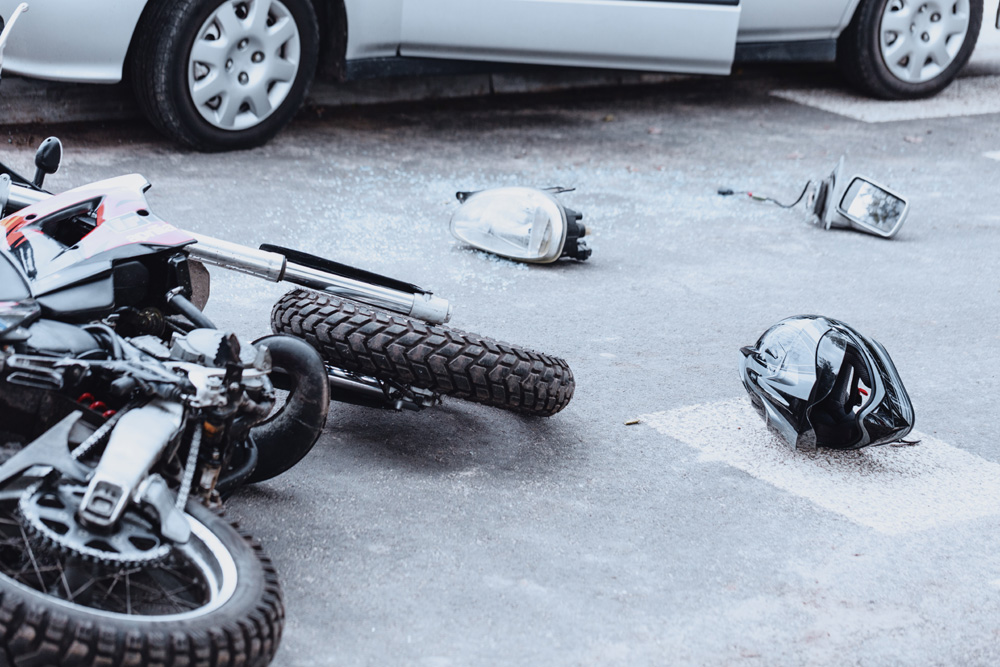Social media is useful for many purposes. It can be used to keep in touch with your distant family or friends, it can help a business reach an audience on the other side of the world, and it can keep you stay informed about what’s going on in your community. A recent study showed that seven out of ten adults in the U.S. regularly use Facebook, and the average amount of time spent per day on this platform is close to an hour at 58.5 minutes. Time spent daily on Instagram is just as high at 53 minutes per day. With so many people using social media and with all the benefits that come with it – is it also possible that social media can sometimes hurt you?
As they say, be careful what you post on social media. That’s because anyone can view your content if they want to. In a situation where you’ve been hurt and are proceeding with a motorcycle accident claim, it’s not wise to post anything online regarding your case or accident. What you post can be used against you and can hurt your case for receiving compensation.
In short, using social media can hurt your motorcycle accident claim. Let’s take a closer look at why that’s the case.
Can Social Media Posts Be Used as Court Evidence?
When it comes to evidence, Florida law allows any evidence relevant to your case to be admissible in court. Florida law defines relevant evidence this way: “Relevant evidence is evidence tending to prove or disprove a material fact.”
In other words, if your social media posts are related to your injuries or your accident, then it can become relevant evidence that can be used against you. If your social media content doesn’t align with your damages and your claim, then your case can be significantly hurt.
If the insurance company or defendant concludes that your social media activity discounts your claims of having been hurt, you can count on the fact that it will be presented to the court.
Why Insurance Companies Want to Discount Your Injury Claim
One of the main objectives of the insurance company is to weaken your injury claim to reduce their financial responsibility to you. If they’re successful in discounting your injury claim, your requests for damages will be undermined, and your claimed damages can be drastically reduced or even nullified.
To discount your injury claim, no social media platform is considered off-limits. The insurance company or the attorney of the defendant will analyze a lot, including:
- Your posts;
- Tweets;
- Images;
- Tagged locations;
- Images that your friends tag you on;
- Check-ins;
- Employment changes;
- And status changes.
Images can be especially damaging. While there is the English saying “a picture is worth a thousand words”, pictures can be especially deceiving and damaging when it comes to personal injury cases. A post-accident photo of you on the beach with a smile on your face with friends may convey to a jury that you are not injured. Nonetheless, that photo does not show the jury the before and after of that snapshot. Nor does this picture demonstrate all the medications or physical therapy required for you to be able to get to the point of enjoying a day out. Lastly, while you may have a smile on your face, that picture does not really show the internal pain you may be feeling. For all of these reasons, it’s wise to play it safe by not posting anything and telling your friends and family not to tag you in anything for the near future on social media – or until your case has been resolved.
What Damages Can Social Media Posts Negatively Impact?
When you go to court with a personal injury claim, your attorney must prove to the judge or jury your past and future damages and the hurt that you’ve suffered as a direct result of the defending party’s negligent actions. Those damages might include any or all the following:
- Bodily injury;
- Disability;
- Pain & suffering;
- Inconvenience;
- Physical impairment;
- Mental anguish;
- Loss of earnings;
- Loss of future earning capacity;
- Loss of capacity to lead an enjoyable life;
- Permanent injury;
- Past and future medical expenses.
These damages are called “compensatory damages.” They’re awarded to compensate you for the losses you experienced due to the motorcycle accident. The defense, or the insurance company, will be aware of the sustained injuries that you’re seeking damages for. With this knowledge, the defense will do everything within their power to defend their insured and attempt to discount your injuries and your claim. You can be sure that they’ll scrutinize your social media activity to look for any information that can diminish your claim. This is typically one of the first places insurance companies look to because it is so easily to access and costs them nothing to obtain.
Call a Motorcycle Crash Attorney in St. Petersburg to Help You
Social media can add joy, entertainment, and even convenience to your life in many ways. But when it comes to your personal injury claim resulting from your motorcycle accident – it’s best to be a “ghost” on social media. You don’t want to give the insurance company or defense any information that can be used against you.
Attorney Frank P. Marsalisi of Marsalisi Law has helped motorcycle and car accident victims recover millions of dollars in St. Petersburg for their injury claims. He will guide you on what to do and what not to do during the entire claims process. Call him to fight for the compensation you deserve. For your free consultation, complete an online contact form, or Talk to Frank today at (727) 800-5052.
Marsalisi Law is Where Law Gets Personal.







